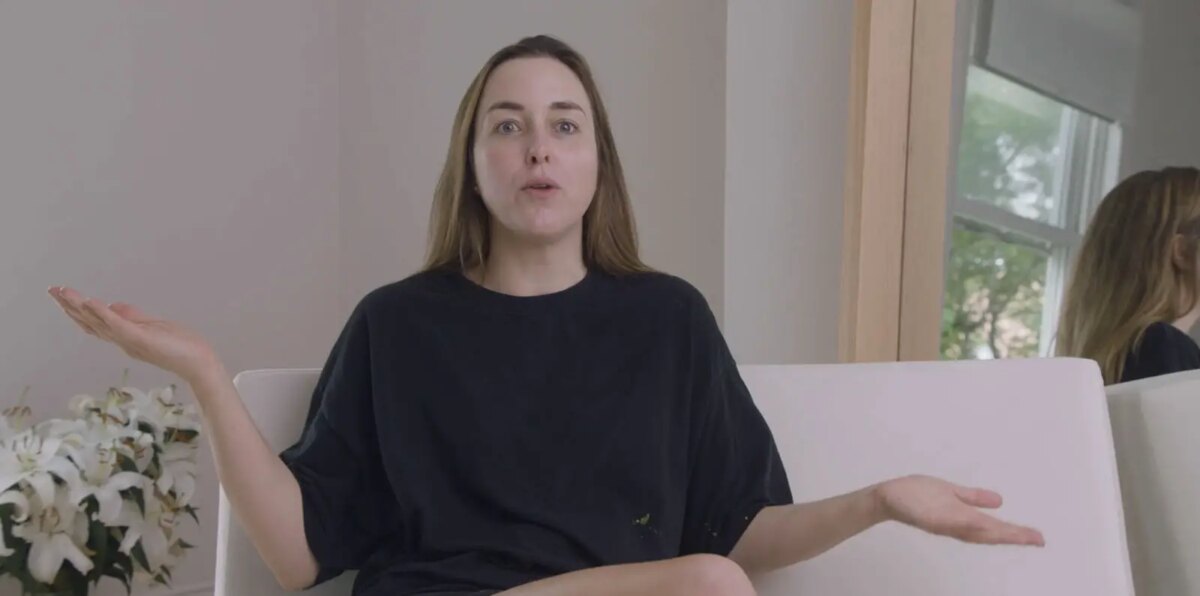
David Sabshon’s documentary, Copyright Infringement, explores the controversies surrounding art, fair use, and copyright infringement. While these topics are discussed, the film focuses more on an Australian artist who managed to subvert the elitist system that controls the business and narrative surrounding art.
Copyright Infringement is a profile on the artist CJ Hendry. She is most known for her hyper-realistic pencil art, which in my opinion, is incredible and beautiful. In 2020-2021, Hendry ran a unique, out-of-the-box global exhibition of her work entitled Copyright Infringement 2.0, based on her previous work in which she was sued for creating a drawing based on photographs of famous figures, including Andy Warhol and Mohammed Ali.
Part one of this exhibit was to take the work of artist Damien Hirst, who produced artwork that featured his piece, Spots, a series of multi-colored dots in a rectangular pattern. What CJ did was take his artwork and draw each dot as a 3D drop of paint, which begs the question, was Hirst’s simple arrangement of dots considered art, and was CJ’s transformation of Hirst’s work into 3D copyright infringement?
Filmmaker Sabshon asks these questions to various art experts in the film, but that’s really not the thrust of CJ’s story. It has more to do with part two of the exhibit, where Hendry printed her pencil art on a t-shirt and baseball cap, packaged it in paint cans, and left in boxes scattered around in five cities around the world for fans to scavenge. Most of the documentary is about Hendry’s scavenger hunts.
I’d say that 85% of Copyright Infringement is about these scavenger hunts, with a small discussion about art to fill us the rest. This is not necessarily a bad thing, but I want to talk about art. Hendry’s art is fantastic. It looks so photographic real that it’s hard to believe it’s pencil. Hendry herself has a charismatic and friendly personality.
“…where Hendry printed her pencil art on a t-shirt and baseball cap, packaged it in paint cans, and left in boxes…for fans to scavenge.”
Sabshon walks us through all the details and preparation Hendry, and her team goes through to distribute fifty boxes within about ten minutes of each other. She then posts each location on Instagram and the mad rush for her fans to grab the box. Sometimes Hendry is there to film the pickup and response. Yes, she has decoys in case she gets tailed. This process is repeated throughout the film as she visits various cities around the world. It gets tedious at times.
Overall, I enjoyed Copyright Infringement, but I am annoyed because I wanted a documentary about copyright infringement’s legal and ethical ramifications, and I got something entirely different instead. I liked the discussion of what art is. Is it as simple as a series of colored dots on a page, or does it have to be elevated or evolve in some way? Also, is a photorealistic drawing of a photo actually copyright infringement, and just how much does one have to alter it to be considered fair use?
The point that the entirety of the documentary makes is, who are the gatekeepers of art? Do you have to join the “club” to be considered legitimate? For CJ, she is not part of the elite art community of New York, Paris, or wherever. She is an everyday person from an ordinary upbringing. Rather than be commissioned by a prestigious gallery, Hendry reproduced and distributed her art on her terms…even if it meant leaving it in random locations for normie scavengers like us to find. Is art for everyone, or is it dictated by the right willing to pay millions?
Though Copyright Infringement is not precisely what I hoped for in a documentary about copyright infringement, if anything, it made me a fan of CJ Hendry and her revolutionary approach to the business of art.
For screening information, visit the Copyright Infringement official website.














